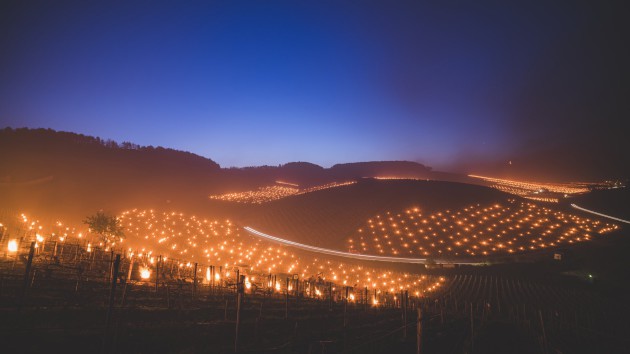
Pledge of €1bn made to mitigate France’s frost “disaster”
The French government has pledged €1 billion in financial aid for farmers and winemakers whose crops have been devasted by this month’s cold snap which has led to the estimated loss of a third of the country’s wine production.
The pledge was made by French Prime Minister Jean Castex over the weekend after France’s wine and agricultural sectors were affected by some of the worst frost in decades.
Castex said emergency aid would be given “in 10 or 15 days” to local officials to help those who have been the hardest hit.
Further support is reportedly expected to be announced in the next couple of days, with more tailored local support for France’s wine regions, which have been some of the worst affected areas across Europe following the damaging weather conditions which struck on 7 and 8 April.
Earlier in the week, French agriculture minister Julien Denormandie called the bout of unseasonably warm then cold weather “the greatest agricultural catastrophe of the beginning of the 21st century,” and declared the event an “agricultural disaster”.
According to France’s largest agricultural union, Fédération Nationale des Syndicats d’Exploitants Agricoles (FNSEA), the frosts were particularly severe in France, with losses across the country estimated at €2bn.
Data is still emerging on which areas have been most affected. According to reports, some winemakers have lost 100% of their crops, while others have lost much lower amounts.
In the Herault appellation for example, 100% of the vines in Cabrières or Faugères froze. In total, 90% of the Herault vineyard area was affected. In the Rhone, estimates are at 80%.
Across the country, vines were left vulnerable by a spell of unseasonably warm weather which accelerated bud-break, and have reissued calls within France to take action on climate change.
This morning, French President Emmanuel Macron said we are “living the first consequences of climate disorders”.
In a video broadcast he said “we have increased our targets to 2030 and 2050 because we were lagging behind [others parts of the world]. We need India and China to be with us.”
Keywords:
- wine
- pledge
- french
- weather
- affected
- across
- areas
- france’s
- agricultural
- cold
- unseasonably warm
- france’s wine
- largest agricultural
- union fédération
- agricultural union
- “the greatest agricultural
- greatest agricultural catastrophe
- largest agricultural union
- france’s largest agricultural
- “agricultural disaster” according
- FNSEA




